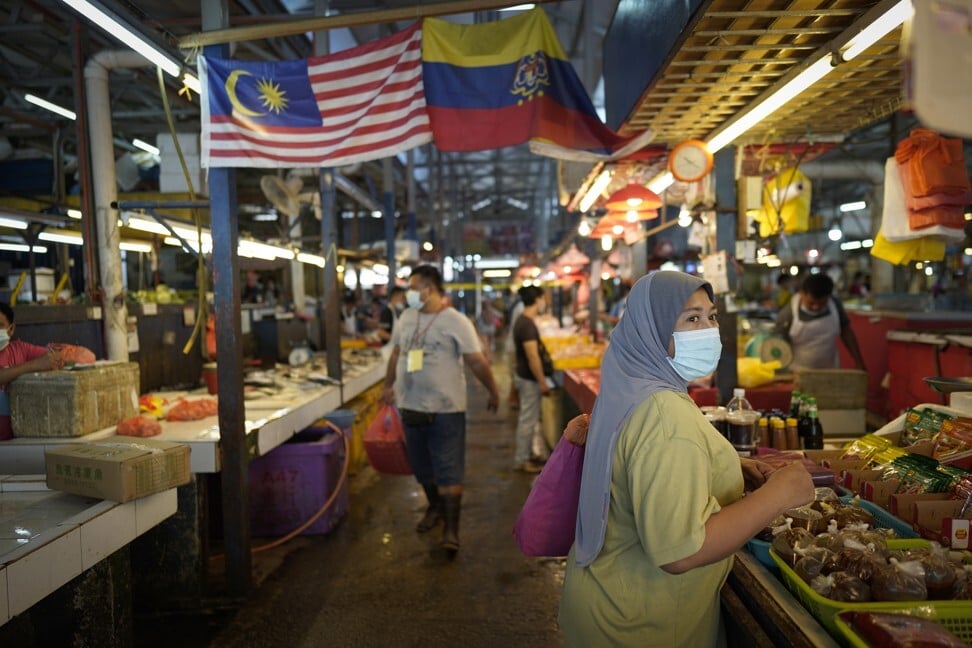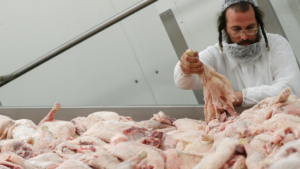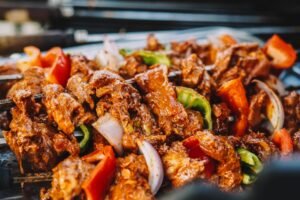- A local media investigation said the group smuggled meat from non-halal certified sources including China, Brazil, Canada and Ukraine
- Products such as kangaroo and horse meat were mixed with and sold as halal beef, said a New Straits Times report, which has also prompted a probe in neighbouring Singapore
A meat-fraud scandal is roiling Malaysia after a local news outlet uncovered a cartel that allegedly bribed customs officials in order to smuggle in all kinds of meat and label it halal, triggering outrage in the Muslim-majority country.
For more than 40 years, the conspirators allegedly bribed senior officers from several government agencies to import meat from non-halal certified slaughterhouses including Brazil, Bolivia, Canada, China, Colombia, Mexico, Spain and Ukraine, according to the New Straits Times, which first reported the story.
Some of the imports included kangaroo and horse meat, which were then mixed with and sold as halal beef.
The only countries Malaysian companies are allowed to import from are Australia, Argentina, Brazil, India, South Africa, Pakistan, Japan, New Zealand and the United States, with imports handled by the Malaysia Islamic Development Department and Veterinary Services Department, the New Straits Times reported.
Halal certification confirms that products have been prepared in accordance with Islamic law, and it is a religious requirement for Muslims globally and in Malaysia, where they make up about 60 per cent of the population.
It is also big business: the country has been trying to become a global hub for the US$2.3 trillion international halal market. Currently it exports about US$9 billion in halal-certified products including food, cosmetics and pharmaceutical products to China, Singapore, the US, Japan and elsewhere.
The news reports did not identify any members of the cartel by name, and one has been arrested. Police have promised a sweeping investigation that will include every part of the smuggling, storage and processing chain.
The country is also considering establishing a Royal Commission of Inquiry, which the religious affairs minister said is the best way to investigate the issue and address concerns of Muslims in the country.
A Kuala Lumpur-based traders and hawkers association has asked its 6,000 members to temporarily suspend the sale of beef-based products.

The cartel’s operations are believed to begin at slaughterhouses, where government agency officers supervise halal standards. The officials would fraudulently certify dubious or low-grade meat products, according to the report.
Meat then entered Malaysia via ports, often avoiding inspection, then transported to warehouses where they were mixed with halal-certified meat and repacked with fake halal logos.
In neighbouring Singapore, authorities said they were investigating whether the alleged meat cartel syndicate had exported some of the fake halal meat to the city state, after messages circulated on social media expressing concern over the scandal.
“(We) are currently looking into the allegations raised to determine if the alleged improprieties affect the Singapore market,” said the Islamic Religious Council of Singapore (Muis) and the Singapore Food Agency (SFA).
Muis said it was writing to the relevant authority in Malaysia to ask for more information.
“We would like to remind the public to always verify information from credible sources and not to spread rumours. Only meat and meat products from SFA-accredited overseas establishments can be imported into Singapore,” both agencies said.
“Muis has a sound process to ensure imported meat that is certified by foreign certifying bodies meets our specified requirements,” they added. “Muis assures the public that the halal-certified meat products that are legally imported into Singapore may be consumed with confidence.”
Malaysia’s fake halal meat controversy comes at the heels of the multibillion dollar 1MDB financial scandal that spurred court cases around the world over allegations of money-laundering, bribery, corruption and fraud, and could rattle Prime Minister Muhyiddin Yassin’s razor-thin parliamentary majority.
Source: This article appeared in the South China Morning Post print edition as: Fake halal meat scandal sparks anger among Muslims >





